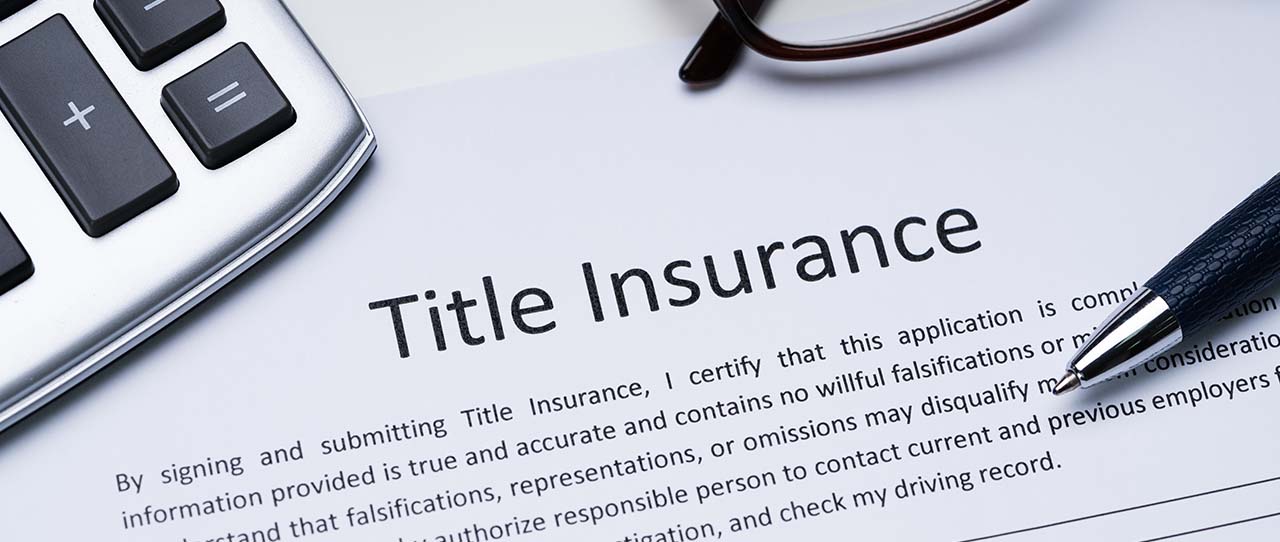

Posted: 2019-12-20 | Author: Scott Roberts
When you take out a mortgage to buy a home, there are always closing costs you are required to pay. One of the costs that you will usually need to pay at the time of closing is for title insurance. When you purchase a new home, you do not want issues coming up later, such as challenges from others who claim to own the property, and this is what title insurance is for.

There is a due diligence process in place to ensure that the title is clean for a property transaction closes. This usually involves the title company, their attorney, or an outside service researching the records in the appropriate county to find out if there are any problems with the title. If anything is uncovered, it must be addressed before the transaction can proceed. Possible problems that may be found include previous ownership challenges, unpaid tax liens, and unpaid utility bills.
Once the title search is complete and a clean title is verified (to the best of everyone’s knowledge), the parties can move forward with confidence to close the deal. However, this does not mean problems cannot arise after you purchase the property. And this is why you need title insurance.
What Title Problems Can Arise after a Home Sale?
If a thorough title search has already been performed by professionals who do this for a living and everything comes up clean, is there really much of a chance that something will come up after the transaction is completed? Or is title insurance just a waste of money?
Title problems after a sale is completed are not everyday occurrences to be sure, but they do happen, and probably more often than most people believe. It is impossible with a title search to know every potential issue that could be at play behind the scenes, and many of these issues do not come to the surface until much later.
Here are some examples of common title issues you may encounter after purchasing a home:
Invalid/Fraudulent Documents
Even though documents may appear to be in order according to government records, it may turn out that something illegal or even fraudulent occurred during their filing. For example, a prior deed may have been filed by a minor, a person of unsound mind, or an undocumented immigrant, all of which could call into question who actually owns the property. Another possibility is that prior documents were forged, thus concealing the true ownership of the property. If any of these issues come to light, it could put your ownership of the property in jeopardy.
Unknown Liens
Most liens should be discovered when a title search is done. Unpaid county property taxes for example should already be in the county records. There are some liens, however, that are not as easy to find out about. For example, what if someone obtained a monetary judgment against the prior owner, and this judgment was entered in a different jurisdiction? Depending on the circumstances, a docketed judgment may automatically place a lien on any real estate property the defendant owns (although the county where the property is located may not have record of this). Without title insurance, the new owner (you) could be on the hook for any unknown liens against the property.
Will/Probate/Estate Issues
If the prior owner recently passed away and the house was sold as part of an estate liquidation, there could be a number of title issues that could come up later. For example, there could be heirs whose whereabouts were unknown at the time of death. If the property is sold and these individuals surface later, they may contest the sale and assert their right to the property. Another possibility is if someone dies and there is believed to be no will. The house is sold during the probate process, then the will is discovered later on and the named heirs sue to get the property back.
Boundary/Survey Disputes
This issue comes up sometimes when someone purchases a property with a significant amount of land. For example, you are shown surveys that show you own 20 acres surrounding your new home, but later on, your neighbor comes forward with a different survey that shows you only have 17 acres and your neighbor owns the other three.
Who Pays Title Insurance?
There are actually two different title insurance policies that are taken out if there is a mortgage/loan on the property that is purchased. One is the owner’s title policy, which is issued to protect the buyer, and the other is the lender’s title policy, which protects the lender. The question of who pays for these policies varies by state and can even vary from county to county. The buyer almost always pays for the lender’s title policy, and in many cases, the seller pays for the owner’s title policy. This is how it is supposed to work in Arizona, but although it may show up this way on paper, in actuality, the buyer often pays for both policies.
Have Further Questions about Title Insurance and Other Mortgage Issues? Speak with a Local Lending Expert!
Title insurance is definitely something every home buyer should have. Although it will add to your closing costs, it is worth it to have the peace of mind of knowing you will be covered if any problems come up. For more information about title insurance and other mortgage questions, speak with your local lending specialist.

